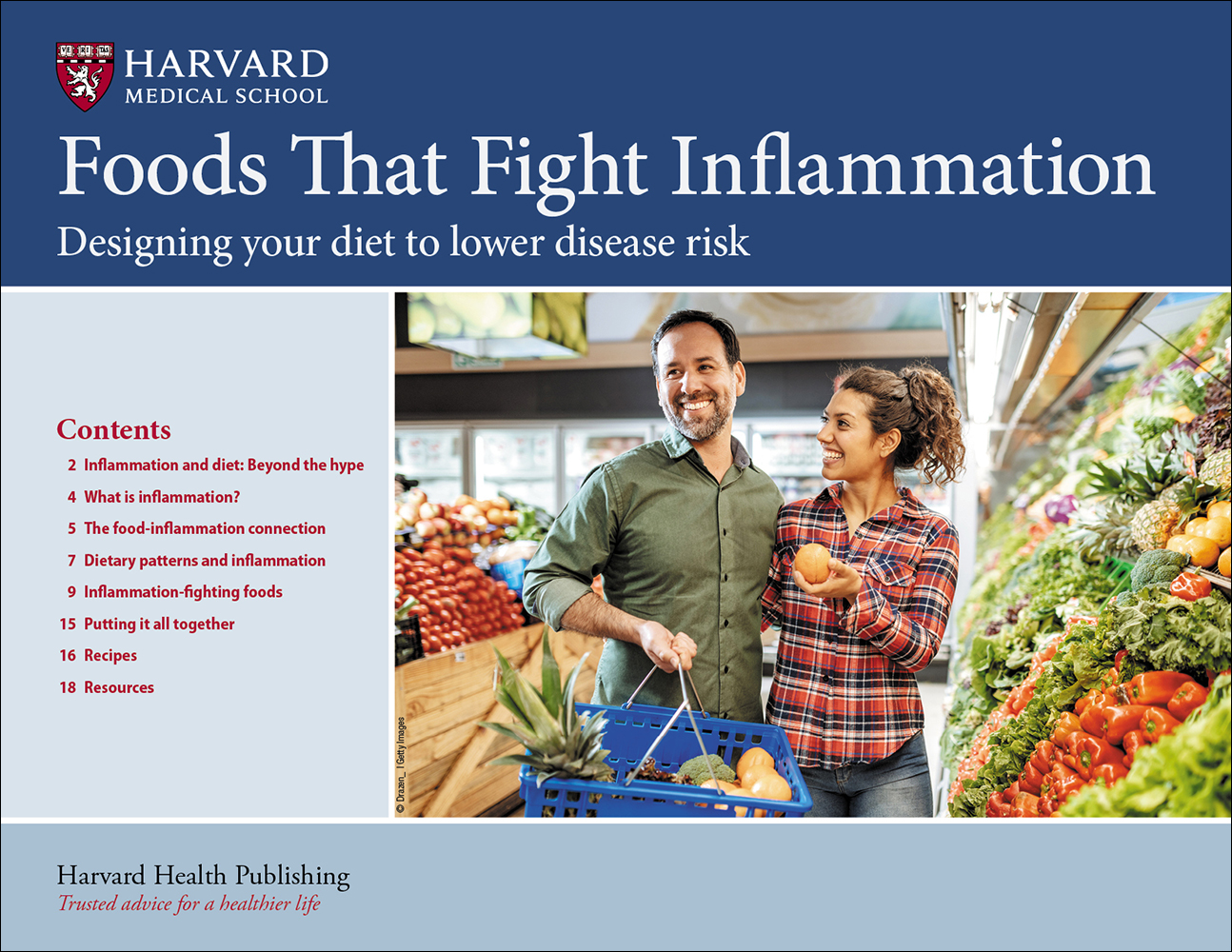Fighting inflammation at the meal table
A healthy diet goes a long way in keeping inflammation—a process that underlies most serious diseases—at bay.

Image:Monticelllo/Thinkstock
We all benefit from inflammation, the process by which our immune system detects and disables foreign molecules or microbes. Although we may not enjoy the runny nose and scratchy throat of a winter cold—the signs of our immune system at work—inflammation eventually rids us of the virus responsible. However, when inflammation persists at low levels after the invader is eradicated, it can become our enemy. Many major diseases that plague us—including cancer, heart disease, diabetes, arthritis, depression, and Alzheimer's—have been linked to chronic inflammation.
Our diets play an important role in chronic inflammation because our digestive bacteria release chemicals that may spur or suppress inflammation. The types of bacteria that populate our gut and their chemical byproducts vary according to the foods we eat. Some foods encourage the grow of populations of bacteria that stimulate inflammation, while others promote the growth of bacteria that suppress it.
That's why one of the most powerful tools to combat inflammation comes not from the pharmacy, but from the produce counter. Many experimental studies have shown that components of foods or beverages may have anti-inflammatory effects.
Choose the right foods, and you may be able to reduce your risk of illness. Consistently pick the wrong ones, and you may promote chronic inflammation, which sets the stage for a host of degenerative diseases
Inflammation-promoting foods
Not surprisingly, the foods that contribute to inflammation are the same ones generally considered bad for our health, including sodas and refined carbohydrates, as well as red meat and processed meats.
Some of the foods that have been associated with an increased risk for chronic diseases such as type 2 diabetes and heart disease are also associated with excess inflammation. It's not surprising, since inflammation is an important underlying mechanism for the development of these diseases.
Such unhealthy foods are also likely to contribute to weight gain, which is itself a risk factor for inflammation. Yet in several studies, even after researchers took obesity into account, the link between foods and inflammation remained, which suggests weight gain isn't the sole driver. Mounting evidence suggests that certain components or ingredients in processed foods, like the emulsifiers added to ice cream, may have independent effects on inflammation.
Inflammation-fighting foods
Fortunately, you are probably already enjoying many of the foods and beverages that have been found to reduce the risk of inflammation, and with it, chronic disease. They include the following:
Fruits and vegetables. Most fruits brightly colored vegetables contain high levels of natural antioxidants and polyphenols—protective compounds found in plants.
Nuts and seeds. Studies have also associated nuts and seeds with reduced markers of inflammation and a lower risk of cardiovascular disease and diabetes.
Beverages. The polyphenols in coffee and the flavonols in cocoa are thought to have anti-inflammatory properties. Green tea is rich in both polyphenols and antioxidants.
Anti-inflammatory eating
It's best to focus on an overall healthy diet rather than singling out individual "good" and "bad" foods, so you won't need bookkeeping software to balance your intake of inflammatory and anti-inflammatory foods. In general, a healthy diet means one high in fruits, vegetables, nuts, whole grains, fish, and healthy oils. If your plate is dominated by unprocessed plant-based foods and bursting with color, you're on the right track.
In addition to lowering inflammation, a more natural, less processed diet can have noticeable effects on your physical and emotional health. A healthy diet is beneficial not only for reducing the risk of chronic diseases, but also for improving your mood and your overall quality of life.
Disclaimer:
As a service to our readers, Harvard Health Publishing provides access to our library of archived content. Please note the date of last review or update on all articles.
No content on this site, regardless of date, should ever be used as a substitute for direct medical advice from your doctor or other qualified clinician.
















